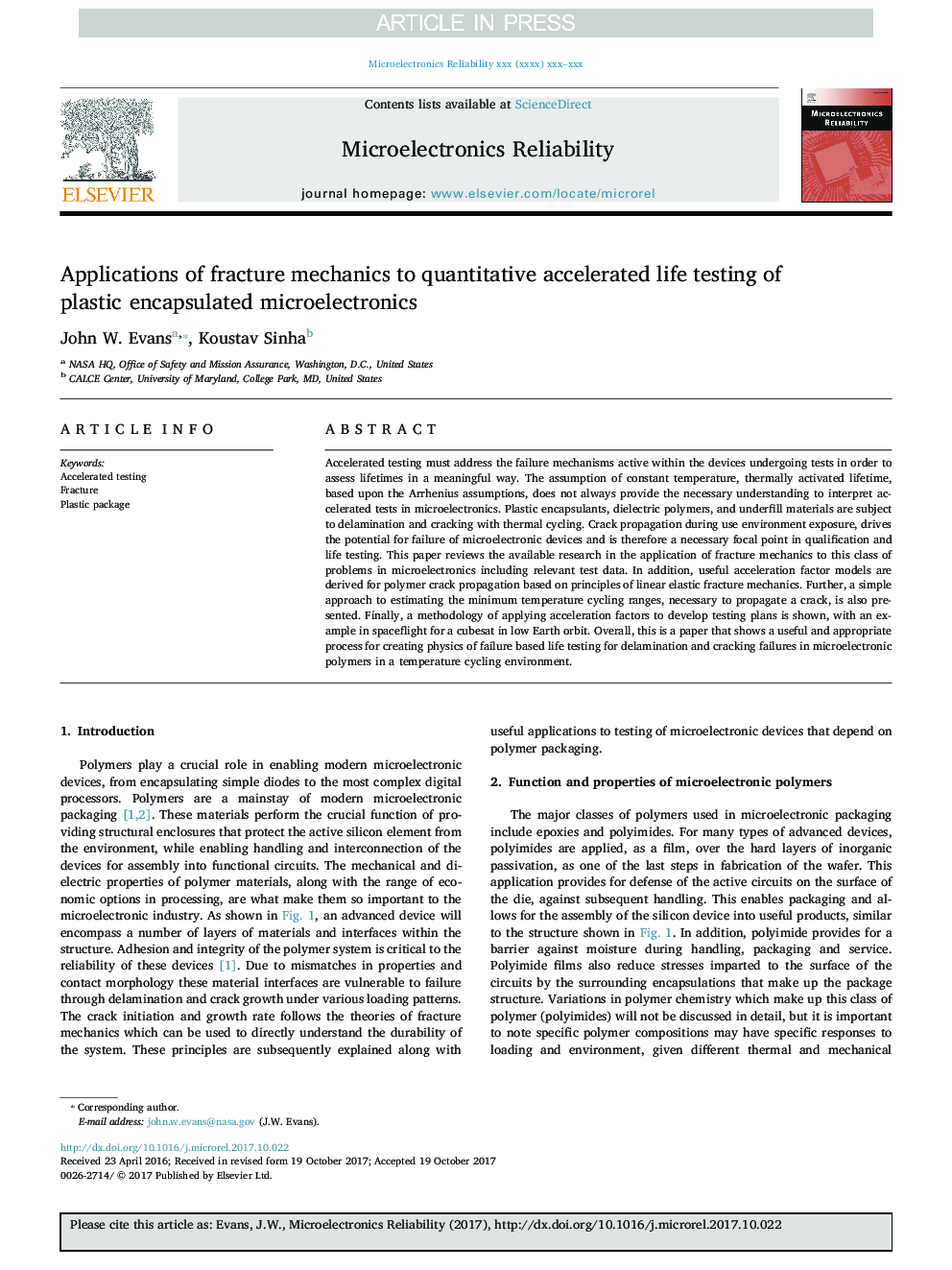| Article ID | Journal | Published Year | Pages | File Type |
|---|---|---|---|---|
| 6946029 | Microelectronics Reliability | 2018 | 11 Pages |
Abstract
Accelerated testing must address the failure mechanisms active within the devices undergoing tests in order to assess lifetimes in a meaningful way. The assumption of constant temperature, thermally activated lifetime, based upon the Arrhenius assumptions, does not always provide the necessary understanding to interpret accelerated tests in microelectronics. Plastic encapsulants, dielectric polymers, and underfill materials are subject to delamination and cracking with thermal cycling. Crack propagation during use environment exposure, drives the potential for failure of microelectronic devices and is therefore a necessary focal point in qualification and life testing. This paper reviews the available research in the application of fracture mechanics to this class of problems in microelectronics including relevant test data. In addition, useful acceleration factor models are derived for polymer crack propagation based on principles of linear elastic fracture mechanics. Further, a simple approach to estimating the minimum temperature cycling ranges, necessary to propagate a crack, is also presented. Finally, a methodology of applying acceleration factors to develop testing plans is shown, with an example in spaceflight for a cubesat in low Earth orbit. Overall, this is a paper that shows a useful and appropriate process for creating physics of failure based life testing for delamination and cracking failures in microelectronic polymers in a temperature cycling environment.
Keywords
Related Topics
Physical Sciences and Engineering
Computer Science
Hardware and Architecture
Authors
John W. Evans, Koustav Sinha,
